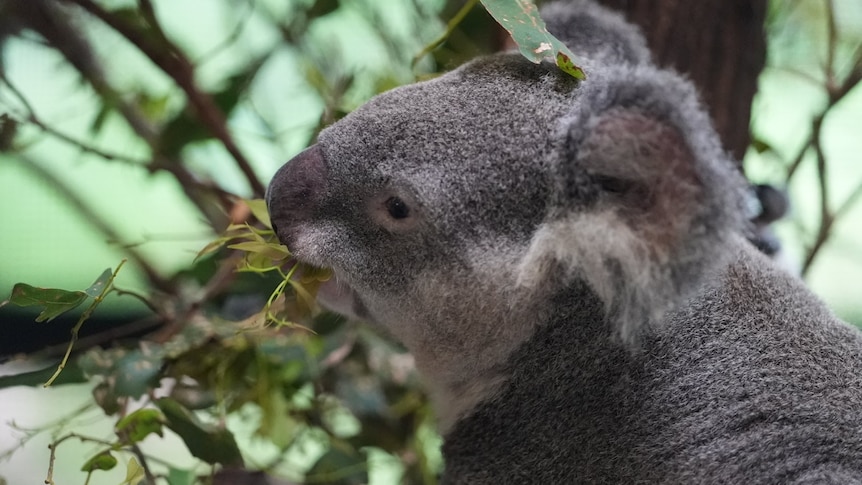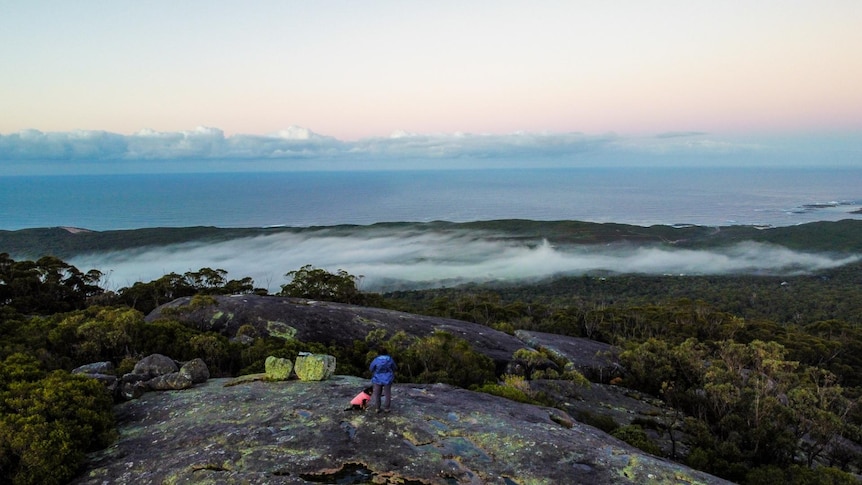Unexpected sightings of koalas near the Blue Mountains have given hope a disease-free colony is recovering after the Black Summer bushfires.
Key points:
- A koala has been spotted near Lithgow, the first reported sighting in the area for five years
- Researchers say the sighting raises hopes for the species’ survival following the Black Summer bushfires
- Koalas were listed as endangered earlier this year amid fears they will be extinct by 2050
A koala seen this week at Hassans Walls, near Lithgow, is the first time the native species has been reported in the area for five years.
It follows sightings in the past 12 months in the Newnes Plateau, Wollemi National Park, and Kanangra-Boyd National Park.
More than 80 per cent of the World Heritage-listed Greater Blue Mountains Area was burned during the 2019/20 bushfires, sparking fears and unmapped koala populations had been destroyed.
Local Margot McGinnes said she was “extremely surprised” to see a koala while walking in an area “generally not known to have koalas”.
“It was just a magnificent sighting. It really was very, very exciting,” she said.
Research group Science for Wildlife has been studying koala populations in the Blue Mountains and Lithgow area.
CEO Kellie Lee said it was a promising development for the recovery of the species in the region “because that area was really badly hit” and indicated a possible koala colony near Lithgow.
“We weren’t sure there would be any koalas left,” Dr Lee said.
“It is suggesting that there could be another colony or perhaps that the Newnes Plateau colony might be connected up with koalas close to Lithgow.
“The fact they are popping up in these areas where they are just not common is a good sign they are out there and expanding.”
Disease-free koalas
Earlier this year, the New South Wales government listed koalas as an endangered species amid fears the animal could become extinct by 2050.
Habitat destruction, bushfires, road accidents, and chlamydia are all reasons behind the decline.
Chlamydia causes blindness, and cysts in koalas’ reproductive tracts lead to infertility or, in some cases, death.
The antibiotics used to treat the disease can destroy the koalas gut, leading some to starve to death even after being cured.
Dr Lee said the koalas they had found were disease-free, making them crucial for the native species survival.
“All of our testing so far has come back negative so we haven’t seen any signs of chlamydia in these populations,” Dr Lee said.
“That is obviously very good news and one less threat that they are facing.”
.

